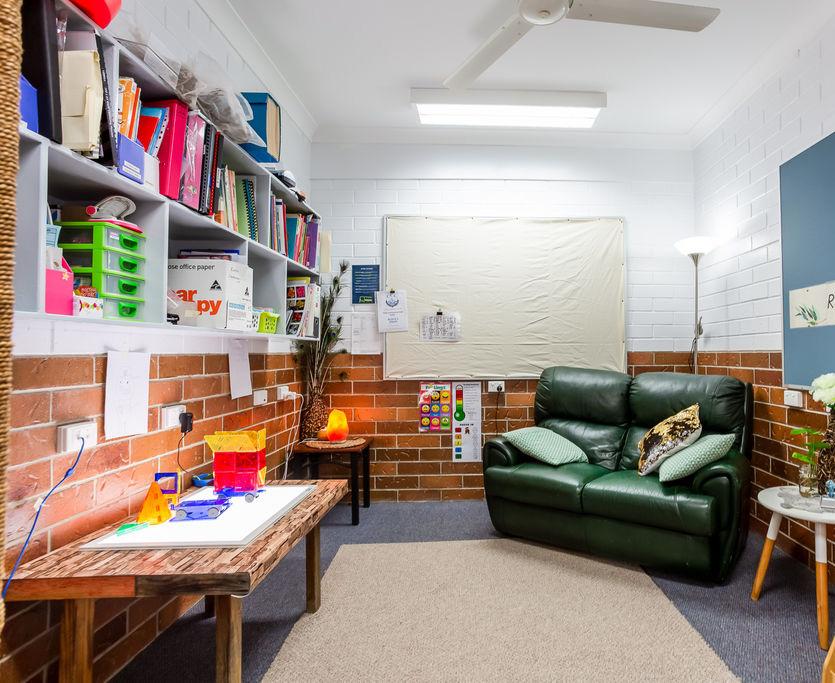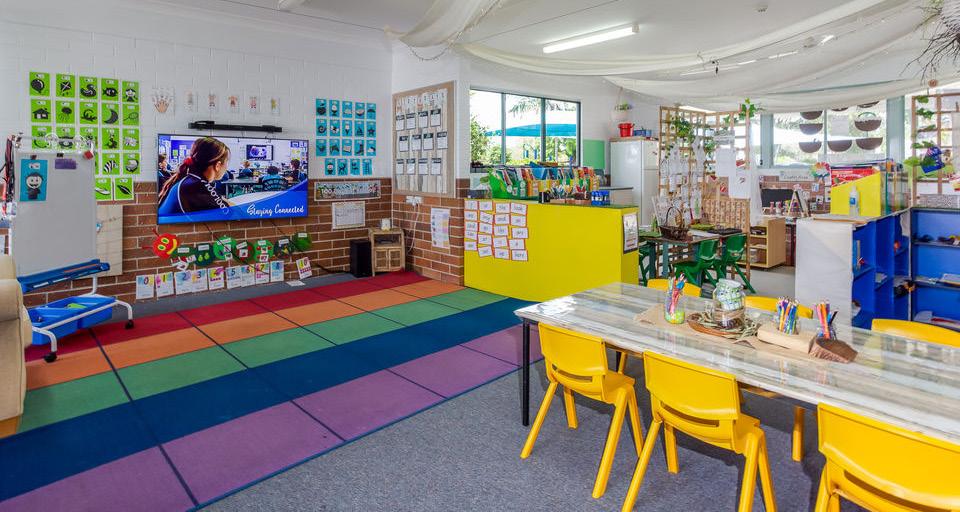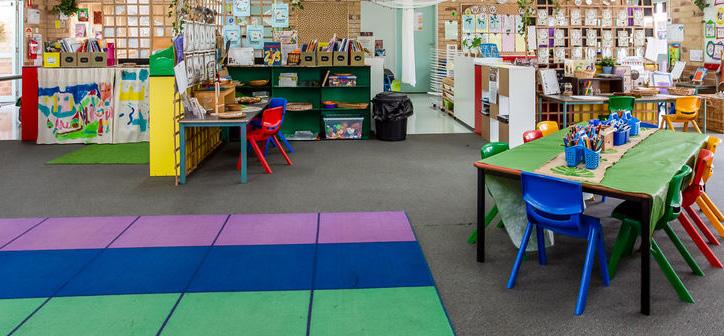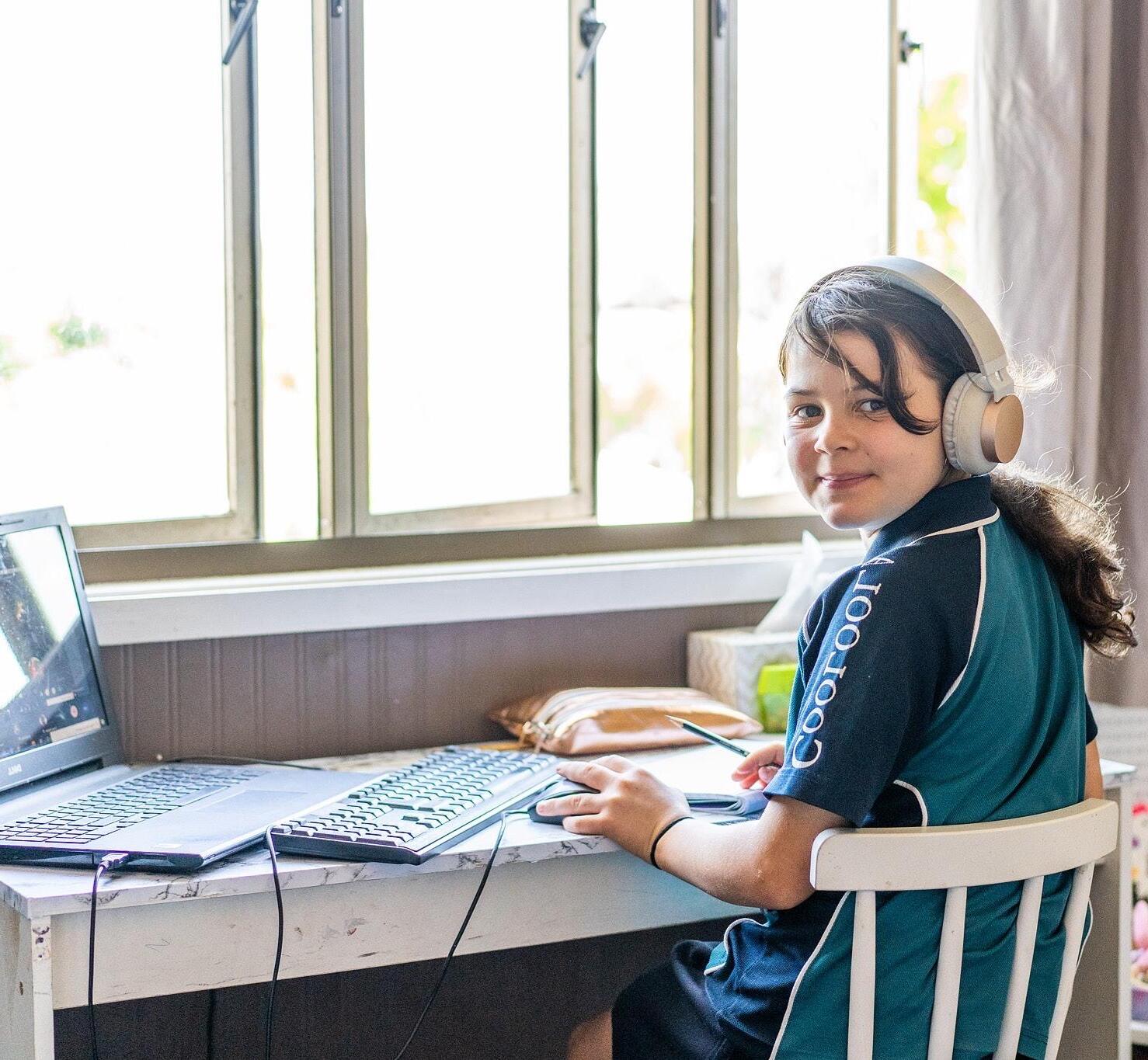
School Refusal Student Anxiety About Attending School www.ccc.qld.edu.au 1 College Rd, Southside
What is school refusal?

2
ANXIETY ABOUT ATTENDING SCHOOL can become a major emotional hurdle for parents and students. Stress can build, leading to sleeplessness, arguments, social isolation, and decreased learning outcomes. If the anxiety is related to a specific incident, the student can be supported by parents, pastoral care teachers and our school chaplain. But sometimes the anxiety can be a result of deeper ongoing issues which can lead to school refusal.
School refusal occurs when a child becomes extremely upset about going to school, or often misses some or all of the school day, and this distress doesn’t go away. School refusal can mean that children have trouble going to school – or that they don’t go to school at all. Children who refuse to go to school usually spend the day at home with their parents’ knowledge, even though their parents do everything in their power to encourage them to go.
It might begin gradually, as parents find it harder and harder to encourage their child to attend school. Alternatively, refusal may happen suddenly, such as at the start of school term or after a physical illness.
School refusal is not a formal psychiatric diagnosis. It’s a name for an emotional and/or behaviour issue.
3
Signs and causes
Signs and symptoms of school refusal
When a child refuses to go to school, school mornings might feel like a ‘battle of wills’. A child might:

• have crying episodes
• throw tantrums
• hide under the bed covers
• refuse to move
• beg or plead not to go
• complain of aches, pains and illness before school, which generally improve if the child stays home
• show high levels of anxiety
• make threats to self-harm.
4
Causes of school refusal
There’s rarely a single cause of school refusal. It might be linked to separation anxiety, a phobia, depression, learning difficulties or social problems at school. It can happen at the same time as or after:
• stressful events at home, school or with peers
• family and peer conflict
• academic challenges – for example, learning difficulties
• starting or changing schools
• moving home
• bullying or teasing
• problems with a teacher.
By not going to school, the child might feel they can:
• avoid scary things – for example tests, teachers, the tuckshop
• avoid challenging situations with peers or teachers
• avoid separation anxiety
• get more attention from parents.
School refusal is different from truancy or ‘wagging’. Children who ‘wag’ usually aren’t interested in school, struggle with authority or behaviour issues such as Oppositional Defiant Disorder (ODD). Parents may not be aware that the child is not at school.
5
SCHOOL REFUSAL IS OFTEN VERY CHALLENGING for parents and school staff. Where a child is anxious about school, refusing to go eases the anxiety short-term, allowing the child to avoid an uncomfortable situation.
Avoiding school may increase the anxiety long-term. The child may fall behind with schoolwork and feel socially isolated. This can make it harder to return to school. For this reason, it is important to explore strategies to help the child return to school confidently.
For parents: When talking with your child
• Acknowledge your child’s anxiety so that he/she feels heard and understood. For example, ‘I can see you’re worried about going to school. I know it’s hard. Remember, your teacher and I want to help you.’
• Let your child know that you understand it’s hard for him/her to go to school when feeling worried or frightened. For example, ‘I understand you feel worried about going to school.’
• Talk about what does happen to help your child attend and feel safe at school – not about whether he/she goes to school.

6
Working on school refusal at home
• Show that you believe your child can go to school by sharing positive and encouraging messages. For example, ‘You’re showing how brave you are by going to school.’ This will build your child’s self-confidence.

• Use clear, calm statements to let your child know that you expect him/her to go to school. Say ‘when’ rather than ‘if’. For example, you can say, ‘When you’re at school tomorrow...’ instead of, ‘If you make it to school tomorrow ...’
• Use direct statements such as, ‘It’s time to get out of bed’ or ‘Jo, please get up and get into the shower.’ Avoid questions such as, ‘Are you going today?’ and, ‘Could you get into the shower now?’ These give your child the chance to say ‘No!’
7
Other strategies

Pray
Pray with your child. Together ask God to give courage and to take away anxiety. 2 Timothy 1:7 says, “For God has not given us a spirit of fear and timidity, but of power, love, and selfdiscipline.” This means we can be brave because God is with us and he helps us be disciplined in the tough things like going to school.
Celebrate
After school, take time to celebrate together the successes of the day. Maybe go out for a special afternoon tea. Ask your child, “What were the good/great things about today?” Don’t ask, “How was school?” Also ask, “Who did you enjoy playing with?” and, “What did you enjoy learning?” These positively framed questions help your child focus on the good and positive aspects of school.
Record
Start a diary, writing down the great things and drawing pictures together. This will also remind and reinforce the positive things of school and give you a chance to unpack thoughts and feelings together. You can also go back over these entries on mornings when the anxiety creeps back in.
8
1 2 3
Photograph
Negotiate with the class teacher for your child to create a photo album. They can take photos of friends, activities, places, etc. at school that they enjoy. This can then be shared at home or when you come to pick up your child in the afternoon.

5 6
Have Fun
If lunchtimes are part of the issue, encourage your child to select an activity group/club where he/she can make friends and build confidence.
The Responsible Thinking Classroom (RTC), for example, is a place where many students go to hang out, play with Lego and make new friends. This is supervised and forms part of our Pastoral Care strategy.
Socialise
Set up play dates with friends from school. Giving your child a social experience outside school can be a great way to build friendships that can be continued in the school setting. Boys in particular build friendship on shared experiences, so an adventure with a mate outside school becomes an opportunity for bonding at school, and a motivation to go to school every day.
9 4
When you’re at home
• Stay calm. If your child sees or senses that you’re worried, stressed or frustrated, it can increase their anxiety. And by staying calm, you model a positive way of handling the situation.
• Plan for a calm start to the day. This might help your child feel more positive about going to school. You can do this by organising uniforms, lunches and school bags the night before and getting your child to have a shower or bath in the evening.
• Be cautious about unintentionally rewarding school absences. Avoid TV, video games, leisure activities, internet use and family excursions.
• Help your child establish to a reasonable sleep and wake cycle. It’s very hard to help your child get to school if he/she is sleeping during the day and staying awake at night.
• If there is an older or younger sibling, they can help to model the routines. Your child might be asked to help pack a younger sibling’s bag or lunch box. They can prepare lunches together the night before. An older sibling can help tie shoe laces etc. When everyone in the family is excited about the day, it can make a difference.
Getting to school
• Call on a trusted friend or grandparent to drop your child at school. Children often cope better with separation at home rather than at the school gate.
• When your child goes to school, praise him/her by describing what your child might be feeling. You could say, ‘I know this is very hard and I am proud of you for trying hard.’
• Reward your child for going to school. This could be some special time with Mum or Dad or stopping on the way home for an ice-cream or hot chocolate. The reward should be on the same day.
10
Talking about school
Your child might need some help exploring feelings about going to school or talking about school. You can read more information on talking about school at www.raisingchildren.net.au

11
School refusal is unlikely to go away by itself, so your child may benefit from professional support. This support person can help to develop strategies to improve school performance, friendships, and mental health.

12
Getting professional help
IT IS HELPFUL to seek professional guidance to learn about managing school refusal and understand the underlying issue behind it. If your child says that he/she feels sick, make an appointment with your GP to investigate.

If there are no physical reasons for your child to feel sick, your GP may refer you to a paediatrician, child psychiatrist or psychologist. A psychiatrist or psychologist will usually perform an assessment to see whether the school refusal is linked to issues such as anxiety or depression.
Treatment for your child may involve cognitive behaviour therapy, which helps your child learn skills to deal with anxiety about going to school. These skills include relaxation, social skills and helpful thinking about school.
For your child, returning to school might start with small steps toward full-time attendance.
A psychologist or psychiatrist can also help with parenting strategies as together you work to improve school attendance.
13
Karen Ellis (CCC’s on-campus psychologist) and her therapy puppy in training
Final thoughts
Working with the school
You can help your child return to school – and keep attending school – by communicating and working with school staff:
• Talk to your child’s teacher or our Support Services and Wellbeing team and be guided by their ideas and advice. Teachers have lots of experience with children who refuse to attend school.
• You may feel it is helpful to talk with our Chaplain or to our Responsible Thinking Classroom (RTC) staff, who are here to help with all sorts of concerns.
• A support team meeting with teachers, parents, and other key staff can be arranged to assist with planning and implementing strategies.
• Talk with our Support Services and Wellbeing team or your child’s teacher about a gradual start back at school for your child. For example, your child might be able to start with a shorter school day or with favourite subjects and build up from there.

14
Looking after yourself
If your child is going through school refusal, it can be hard on you and the whole family. If you can find ways to look after yourself, you’ll be better able to look after your child.
Here are some ideas:
• Ensure that you are getting enough rest, some physical activity, a healthy diet and some time to yourself. If you’re feeling well and relaxed, you’ll be in better shape to help your child – and cope with any frustration you’re feeling.
• Remind yourself that school refusal is a challenge for families. Persevere. Keep in mind how important it is for your child to attend school and build friendships. Sometimes the challenges help us to grow as parents and to grow in our own faith. When we look back on them, we can see how God has used the situation for good. “Trust in the LORD with all your heart and do not lean on your own understanding. In all your ways acknowledge Him, and He will make your paths straight.”
(Proverbs 3:5-6)
15
Additional help Email supportservices@ccc.qld.edu.au

1 College Rd Southside QLD 4570 Call 07 5481 1000 www.ccc.qld.edu.au
and content contained within this booklet have been adapted from raisingchildren.net.au
Ideas













